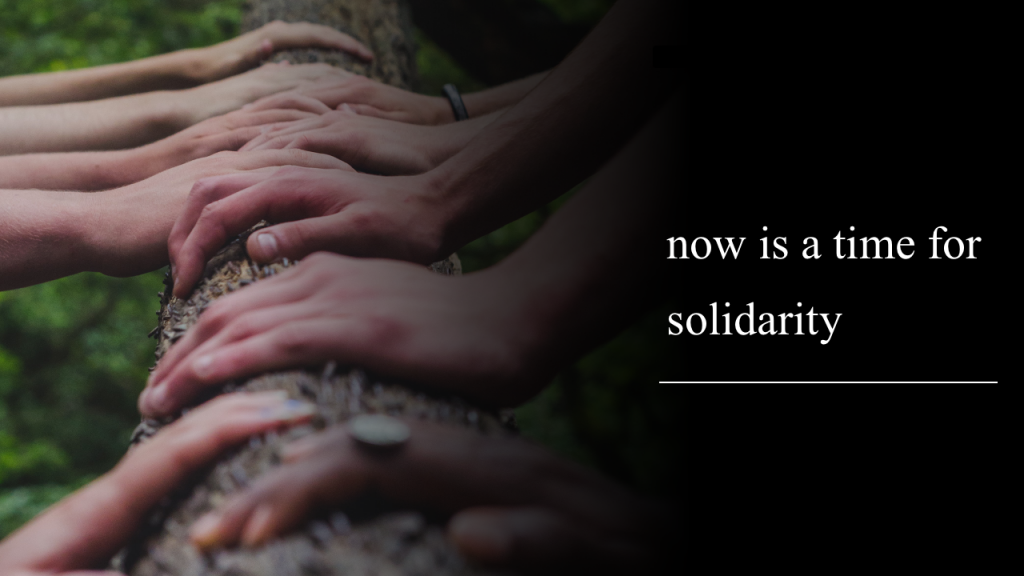Now is a time for solidarity
At the opening of Acts, an intriguing line describes the first Christians.
“They sold whatever they owned and pooled their resources so that each person’s need was met.” (Acts 2:42)
As my small group read Luke and Acts these last three weeks, we wondered at the transformation of Jesus’ followers into a compellingly generous community. (And not in the showy, to-make-a-point kind of way.) They were organized. They were everyday generous in the way we long for these days. As the Church expanded out of Jerusalem, generosity held it together as a common expression of faith.
Solidarity is the root of generosity’s flower
What made this group of people so generous? This question had us reflecting back on the people Jesus collected throughout his ministry — tax collectors who stopped cheating people, desperately poor people healed of untreated health conditions…the early Church was a gathering of people newly awake to the reality of God’s infinite grace and unifying, healing love for all people. If this faith flowered into beautiful generosity, solidarity was its root.
They were not, at least at first, rich in numbers. But they were rich in the quality of trust and inter-dependence that we call solidarity. This was a group of people who sold their land if it allowed them to better care for each other. Perhaps the way this makes sense is in light of their encounters with Jesus and the Spirit he left behind. People who once begged were healed and restored, breaking bread with people who once hoarded resources, but were doing so no longer.
In this way, the early Church fulfilled an ideal that echoes across the pages of the Bible. It’s the same heart-of-God-for-people that inspired laws about gleaning, embracing immigrants, and mindfulness of people without inheritance. This is the same spirit that bubbled into prophetic callout when worship papered over injustice.
Moving beyond expressions of togetherness
This season can feel like a time of scarcity in a lot of ways. As we reflect on how a pandemic reverberates through our health system and economy, we observe that scarcity disproportionately impacts the very people who were most economically vulnerable to begin with. To top it off, our communities lack the kind of diversity that helps us stand in solidarity with our neighbors. I recently read an article titled, Stop saying ‘we’re all in this together.’ You have money. It’s not the same. People yearn for more than just expressions of togetherness. Even our churches are strikingly segregated, concentrating more resources in some places than in others. Corona has made this more visible to us than before. This is a thing to lament. This is a thing that needs healing.
But we are not without hope. In just a few verses about the nature of the early church community, we see reflected back to us hope for our uncertain, divided, and unjust world. We see a group of people whose encounter with Jesus’ life shaped the kind of community that God intended all along.
On Sunday, Richard Wallace shared some of the ways that NSCBC is thinking about generosity during this season. You can watch that announcement here.
Now is the time for solidarity.
By Sarah Bartley
For more reading: Stop saying ‘we’re all in this together.’ You have money. It’s not the same.
Explore The Bible Project Generosity Theme: https://bibleproject.com/explore/generosity/

